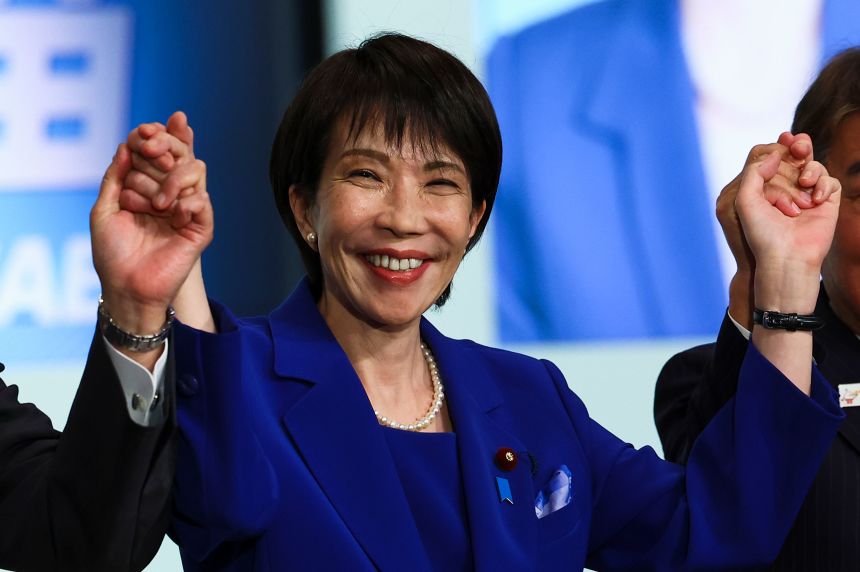Japanese stocks are likely to climb to new highs as investors anticipate that Japan’s new Prime Minister, Sanae Takaichi, will press ahead with aggressive fiscal expansion.
Takaichi’s historic election as Japan’s first female leader has given fresh momentum to markets, with expectations that her administration will pursue policies that reinforce Japan’s industrial strength and global competitiveness. The result has sparked optimism that fiscal stimulus will continue to support growth while investment flows accelerate into Japanese equities.
Join our WhatsApp Channel
Nigel Green, CEO of deVere, says investors are betting that Tokyo will maintain a pro-growth stance even as other major economies cool.
“Markets see in Takaichi a leader who intends to keep Japan’s economy moving forward through targeted public investment,” he comments.
READ ALSO: UK Borrowing Crisis Makes pension Tax Raid Almost Inevitable’
TICAD9: Japan PM Pledges $5.5bn Support For Africa
Japan’s Hidankyo Wins 2024 Nobel Peace Prize For Efforts To Eliminate Nuclear Weapons
“There are indications that fiscal expansion will remain at the heart of policy, particularly in sectors viewed as vital to national resilience – defence, technology, energy, and cybersecurity.”
Equities are responding accordingly. Futures trading points to renewed strength in the Nikkei 225 and Topix indices as confidence builds that fiscal support will be sustained.
Japan has already been one of the standout equity markets of the year, buoyed by corporate reform, improved governance, and surging foreign interest.
“Global investors have been steadily increasing their exposure to Japan because the story has shifted from deflation to expansion,” Nigel Green notes.
“Now, the country’s political stability and renewed fiscal ambition are giving that rally fresh impetus.
“Takaichi’s proposed alignment of government spending with structural reform is viewed by markets as a potential turning point for Japan’s economic model. Her coalition has pledged to streamline bureaucracy and direct spending toward long-term strategic goals.”
Nigel Green continues: “Japan’s growth model is evolving from emergency stimulus to purposeful investment.
“It matters because it underpins confidence that fiscal expansion can drive productivity, not just liquidity. Investors are positioning early for what could be a powerful multi-year growth phase.”
Still, he warns that fiscal optimism comes with financial risks. The yen continues to trade near multi-decade lows, and bond markets are bracing for increased issuance as government spending expands.
“Currency and bond markets are sending a reminder that policy credibility remains essential,” he explains.
“If spending is not balanced with fiscal discipline, Japan could see inflationary pressures intensify and borrowing costs rise. For now, however, equity investors are more focused on the growth potential than the fiscal arithmetic.”
Japan’s pro-growth stance contrasts sharply with the more cautious approach seen in Europe and parts of North America, where governments are constrained by higher borrowing costs and political gridlock.
Takaichi’s fiscal assertiveness could reinforce Japan’s appeal as a key growth market for international investors seeking diversification and policy clarity.
The political transition has also strengthened confidence in Japan’s corporate sector, where companies are benefiting from shareholder reform, higher dividends, and export-driven gains amplified by the weak yen. Analysts expect further foreign inflows into equities as long as the policy trajectory remains expansionary.
Nigel Green concludes: “As Takaichi’s administration takes shape, markets are effectively voting with their capital, and they’re voting for growth.”












